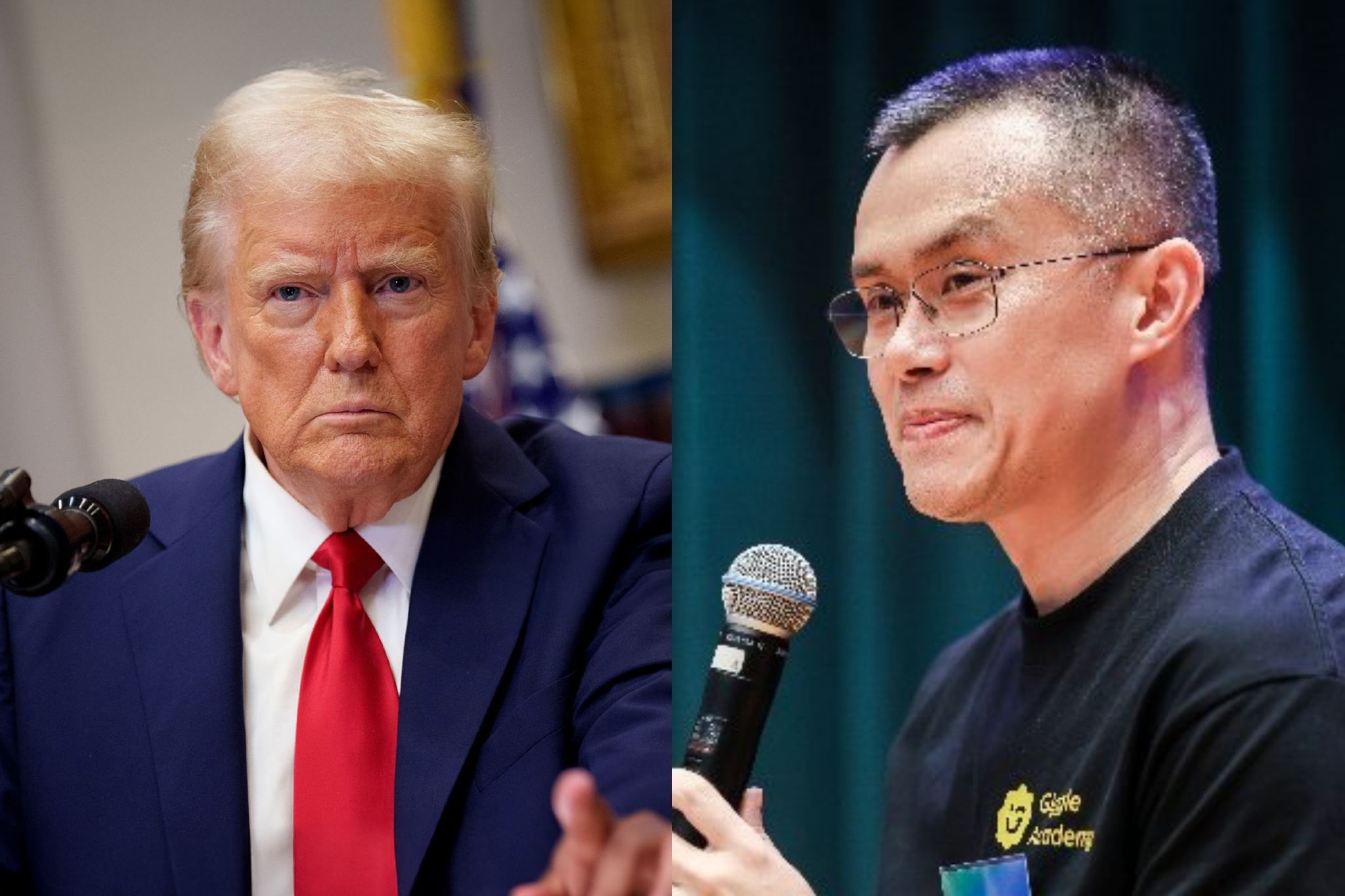Top Stories
Changpeng Zhao Receives Presidential Pardon from Donald Trump

Changpeng Zhao, the former CEO and co-founder of Binance, has been granted a presidential pardon by U.S. President Donald Trump. This decision, made public on October 23, 2024, comes after Zhao faced legal consequences for violations related to the Bank Secrecy Act (BSA), ultimately pleading guilty in 2023.
Zhao is recognized as Canada’s richest individual, with an estimated net worth of C$61 billion. While the Thomson family maintains the title of the wealthiest family in Canada, Zhao’s financial standing has made headlines globally. His legal troubles stemmed from allegations that Binance failed to implement an effective anti-money laundering program, resulting in a penalty of US$4.3 billion for the exchange and a personal fine of US$50 million for Zhao himself. Furthermore, he served four months in a California prison in 2024.
During a press conference, Trump described Zhao as a figure with significant support, stating, “I don’t believe I’ve ever met him, but he had a lot of support — a lot of support. And they said that what he did is not even a crime.” Zhao expressed his gratitude on X, a social media platform, thanking Trump for “upholding America’s commitment to fairness, innovation, and justice.” He reiterated his intention to help position America as a leader in the cryptocurrency space.
Political Reactions and Controversies
The pardon has not been without controversy. Karoline Leavitt, White House press secretary, defended Trump’s decision by stating that the Biden administration had overly prosecuted the case. “Even the judge in the case admitted that the Biden administration was pursuing an egregious over-sentencing of this individual,” Leavitt remarked.
Criticism has arisen from various political figures, notably U.S. Senator Elizabeth Warren. In a statement, Warren accused Zhao of leveraging his connections to advance one of Trump’s crypto ventures and suggested that the pardon reflects a deeper corruption in politics. “If Congress does not stop this kind of corruption in pending market structure legislation, it owns this lawlessness,” she warned.
In response to Warren’s comments, Zhao threatened legal action for defamation, asserting that he was not convicted of money laundering but for BSA violations. His legal team emphasized his intention to protect his reputation against what they described as misleading statements.
Implications of the Pardon
The implications of this pardon extend beyond Zhao and Binance, touching on broader themes of regulatory oversight in the cryptocurrency industry. The U.S. Constitution provides the president with the authority to grant clemency without needing approval from other branches of government, a power that some critics argue can be abused. According to Congressional Digest, the pardon system was designed to protect individuals from judicial overreach, but it raises questions about accountability and transparency.
As the cryptocurrency landscape continues to evolve, the repercussions of Zhao’s pardon may influence discussions around regulatory frameworks and the future of digital currencies in the United States and beyond. Zhao’s commitment to furthering crypto innovation in America could play a pivotal role in shaping the industry’s future, but the ongoing political debates will likely keep this issue at the forefront of public discourse.
-

 Education3 months ago
Education3 months agoBrandon University’s Failed $5 Million Project Sparks Oversight Review
-

 Science4 months ago
Science4 months agoMicrosoft Confirms U.S. Law Overrules Canadian Data Sovereignty
-

 Lifestyle3 months ago
Lifestyle3 months agoWinnipeg Celebrates Culinary Creativity During Le Burger Week 2025
-

 Health4 months ago
Health4 months agoMontreal’s Groupe Marcelle Leads Canadian Cosmetic Industry Growth
-

 Technology3 months ago
Technology3 months agoDragon Ball: Sparking! Zero Launching on Switch and Switch 2 This November
-

 Science4 months ago
Science4 months agoTech Innovator Amandipp Singh Transforms Hiring for Disabled
-

 Education3 months ago
Education3 months agoRed River College Launches New Programs to Address Industry Needs
-

 Technology4 months ago
Technology4 months agoGoogle Pixel 10 Pro Fold Specs Unveiled Ahead of Launch
-

 Business3 months ago
Business3 months agoRocket Lab Reports Strong Q2 2025 Revenue Growth and Future Plans
-

 Technology2 months ago
Technology2 months agoDiscord Faces Serious Security Breach Affecting Millions
-

 Education3 months ago
Education3 months agoAlberta Teachers’ Strike: Potential Impacts on Students and Families
-

 Science3 months ago
Science3 months agoChina’s Wukong Spacesuit Sets New Standard for AI in Space
-

 Education3 months ago
Education3 months agoNew SĆIȺNEW̱ SṮEȽIṮḴEȽ Elementary Opens in Langford for 2025/2026 Year
-

 Technology4 months ago
Technology4 months agoWorld of Warcraft Players Buzz Over 19-Quest Bee Challenge
-

 Business4 months ago
Business4 months agoNew Estimates Reveal ChatGPT-5 Energy Use Could Soar
-

 Business3 months ago
Business3 months agoDawson City Residents Rally Around Buy Canadian Movement
-

 Technology2 months ago
Technology2 months agoHuawei MatePad 12X Redefines Tablet Experience for Professionals
-

 Business3 months ago
Business3 months agoBNA Brewing to Open New Bowling Alley in Downtown Penticton
-

 Technology4 months ago
Technology4 months agoFuture Entertainment Launches DDoD with Gameplay Trailer Showcase
-

 Technology4 months ago
Technology4 months agoGlobal Launch of Ragnarok M: Classic Set for September 3, 2025
-

 Technology4 months ago
Technology4 months agoInnovative 140W GaN Travel Adapter Combines Power and Convenience
-

 Science4 months ago
Science4 months agoXi Labs Innovates with New AI Operating System Set for 2025 Launch
-

 Top Stories2 months ago
Top Stories2 months agoBlue Jays Shift José Berríos to Bullpen Ahead of Playoffs
-

 Technology4 months ago
Technology4 months agoNew IDR01 Smart Ring Offers Advanced Sports Tracking for $169










